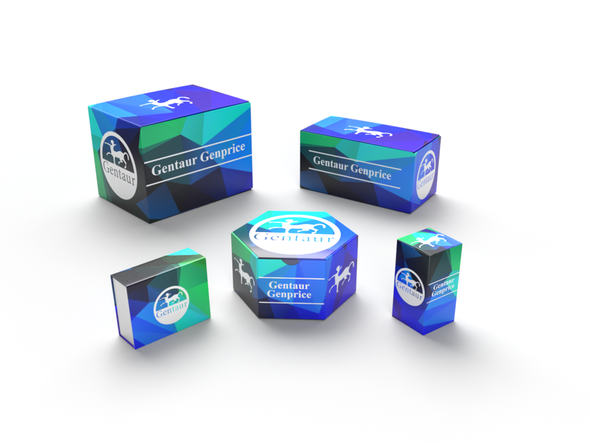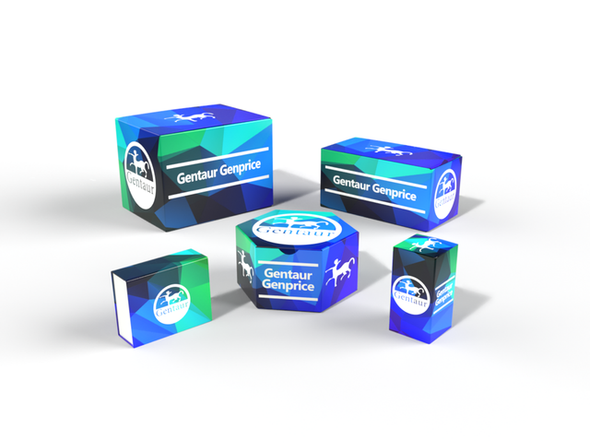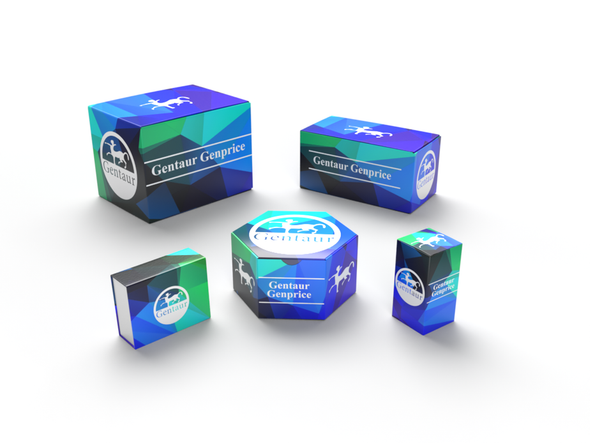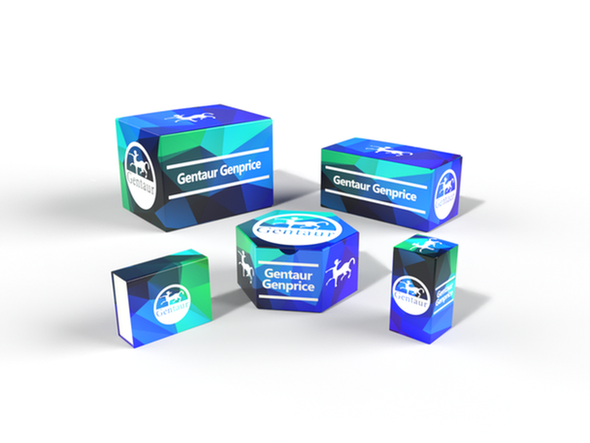740
Human Nuclear factor of kappa light polypeptide gene enhancer in B-cells inhibitor epsilon (NFKBIE) ELISA Kit | AE62962HU
- SKU:
- 740-AE62962HU
- Availability:
- Usually ships in 5 working days
Description
Human Nuclear factor of kappa light polypeptide gene enhancer in B-cells inhibitor epsilon (NFKBIE) ELISA Kit | AE62962HU | Gentaur UK, US & Europe Distribution
Species Reactivity: Human (Homo sapiens)
Abbreviation: NFKBIE
Alternative Name: IKBE;
Application: ELISA
Range: Request Information
Sensitivity: Request Information
Intra-Assay: ≤6.3%
Inter-Assay: ≤11.4%
Recovery: 1, 09
Sample Type: Serum, Plasma, Other biological fluids
Detection Method: Sandwich
Analysis Method : Quantitive
Test Principale: This assay employs a two-site sandwich ELISA to quantitate NFKBIE in samples. An antibody specific for NFKBIE has been pre-coated onto a microplate. Standards and samples are pipetted into the wells and anyNFKBIE present is bound by the immobilized antibody. After removing any unbound substances, a biotin-conjugated antibody specific for NFKBIE is added to the wells. After washing, Streptavidin conjugated Horseradish Peroxidase (HRP) is added to the wells. Following a wash to remove any unbound avidin-enzyme reagent, a substrate solution is added to the wells and color develops in proportion to the amount of NFKBIE bound in the initial step. The color development is stopped and the intensity of the color is measured.
Product Overview: NFKBIE protein expression is up-regulated following NF-κB activation and during myelopoiesis. NFKBIE is able to inhibit NF-κB-directed transactivation via cytoplasmic retention of REL proteins.NFKB1 or NFKB2 is bound to REL, RELA, or RELB to form the NF-κB transcription factor complex. The NFKB complex is inhibited by I-kappa-B proteins (NFKBIA or NFKBIB), which inactivate NF-kappa-B by trapping it in the cytoplasm. Phosphorylation of serine residues on the I-kappa-B proteins by kinases (IKBKA, or IKBKB) marks them for destruction via the ubiquitination pathway, thereby allowing activation of the NF-kappa-B complex.For some genes, activation requires NFKB interaction with other transcription factors, such as STAT (see STAT6), AP-1 (JUN), and NFAT (see NFATC1) .
Stability: The stability of ELISA kit is determined by the loss rate of activity. The loss rate of this kit is less than 5% within the expiration date under appropriate storage condition. The loss rate was determined by accelerated thermal degradation test. Keep the kit at 37°C for 4 and 7 days, and compare O.D.values of the kit kept at 37°C with that of at recommended temperature. (referring from China Biological Products Standard, which was calculated by the Arrhenius equation. For ELISA kit, 4 days storage at 37°C can be considered as 6 months at 2 - 8°C, which means 7 days at 37°C equaling 12 months at 2 - 8°C) .










